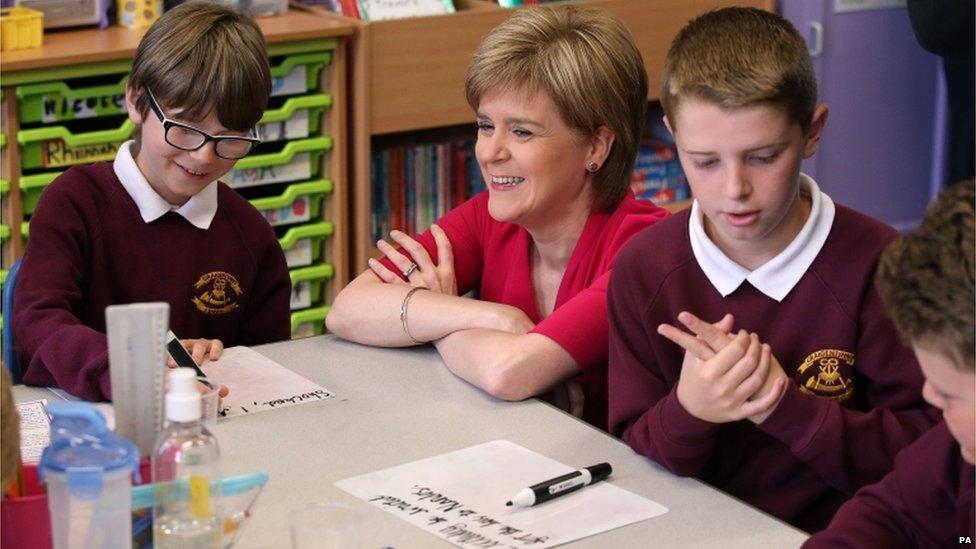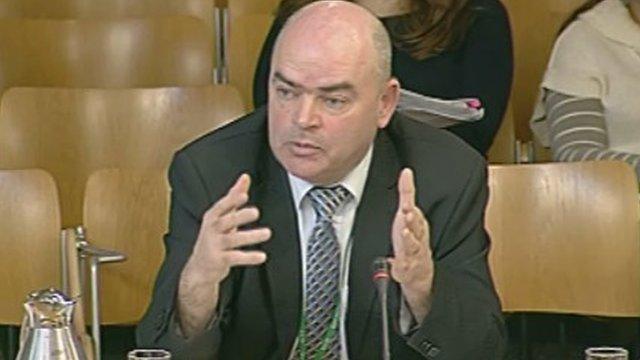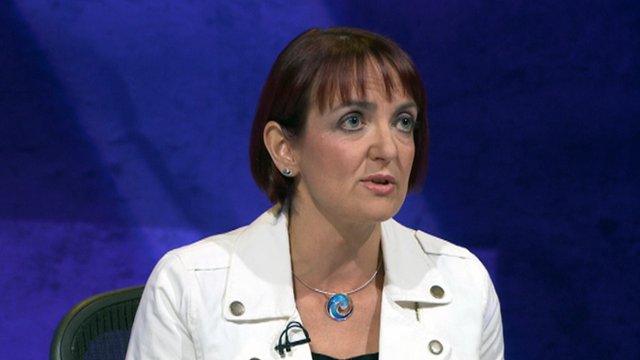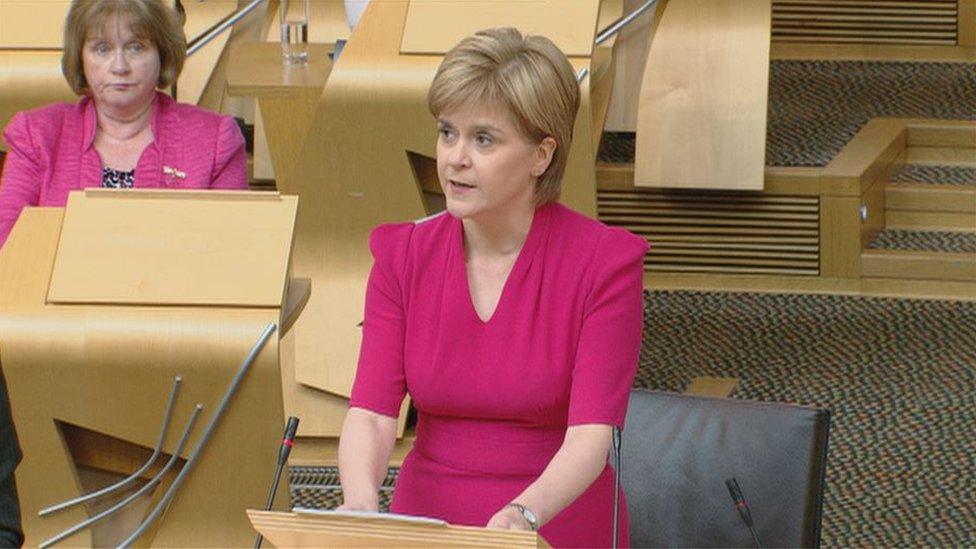Teaching unions hit out at government's school testing plan
- Published

Nicola Sturgeon pledged to close the attainment gap between Scotland's wealthiest and most deprived pupils
Teaching unions have criticised Scottish government plans to introduce a new classroom testing system.
Both the Educational Institute of Scotland (EIS) and the Scottish Secondary Teachers' Association (SSTA) raised concerns.
The plan will see national standardised assessments at primary schools and the early years of secondary.
The government insisted the move was not a return of "high-stakes national testing" scrapped 12 years ago.
Angela Constance: "The government and myself have made crystal clear that we're not interested in crude league tables."
However, the EIS said the new assessments were a "damaging, retrograde step" and the SSTA warned that there was a risk of industrial action after many of its members voiced "annoyance and upset".
First Minister Nicola Sturgeon announced the plan to introduce new standardised assessments during her programme for government speech last week.
Children would sit tests in numeracy and literacy four times - in Primaries 1, 4 and 7 and third year of secondary school.
Speaking to BBC Radio's Good Morning Scotland programme, Education Secretary Angela Constance said that she was "not interested in crude league tables".
'Burden of assessment'
She added: "Since I've been the education secretary, there has been a very strong debate about the need for more information about how our children are doing, particularly in primary schools and in broad general education.
"There are many academics, whether it's Keir Bloomer, Sue Ellis or Sally Brown and indeed two of the three opposition parties who have been calling for a national improvement framework."
More details of the assessments are expected later, but the government said they would actually reduce what it called "the burden of assessment" on children and teachers.
The plan is to introduce them in 2016 at schools taking part in a £100m government scheme to raise attainment and roll them out to the rest of the country in 2017.

ANALYSIS
By Jamie McIvor, BBC Scotland education correspondent

It's clear the Scottish government will have a real challenge winning over some teachers to the prospect of standardised assessments.
The Scottish government could not have put it more simply last week. It is adamant this will not be the return of "high stakes national testing" and that it will not be judging schools and teachers on the results of these assessments in isolation.
The government wants better data to help drive up the performance of children from less well off backgrounds - one of the First Minister's top priorities and an aim few, if indeed any, teachers would not share.
Yet some teachers clearly do not feel reassured.

One concern among some teachers is that the secondary school assessments could mean a new burden on teachers and students rather than simply the standardisation of existing tests.
Under Curriculum for Excellence there has been a general shift in emphasis away from formal assessment and testing.
Critics argue too much testing can simply encourage teachers to "teach children how to pass tests" rather than actually understand the subject.
Larry Flanagan: "What we don't need is a national system which is really about benchmarking across Scotland rather than looking at classroom practice."
Another concern expressed by unions is that the introduction of standardised tests in S3 would add to the workload of teachers while they still contend with the new National 4 and 5 qualifications which have replaced Standard Grades and the changes to Highers and Advanced Highers.
EIS general secretary Larry Flanagan said: "The introduction of these standardised assessments seems to be driven, in part, by a desire on the part of Scottish government to take control of education nationally rather than allow local authorities to be responsible for service delivery.
"Despite some reassuring words from the first minister, in response to EIS concerns, about maintaining the primacy of teacher professional judgement, the EIS is of the view that it will be almost impossible to put in place safeguards which would stop national assessments leading to the league table, target- setting agenda which Curriculum for Excellence was supposed to have ended.
"In such a scenario standardised assessments will compromise and narrow the learning experience of students, as all the international research evidence makes clear, rather than enhance it."
'One cap fits all'
The general secretary of the SSTA, Seamus Searson, said that if there was an issue with assessments at primary level then it was right to deal with it.
However, he argued there was not a similar issue at secondary level.
Mr Searson said: "The government needs to accept that primary and secondary schools are different and should not attempt to apply a 'one cap fits all' mentality."
"SSTA members are very annoyed and upset at the proposal and are seeking support from the union to resist this development. The SSTA will engage at all levels to get a change to the proposals. "
The Scottish government said the aim of standardising the assessments was to improve the quality of information that was available nationally.
This would play a part in helping the government meet its aim of closing the gap between children from relatively rich and poor backgrounds.
- Published8 September 2015

- Published8 September 2015

- Published8 September 2015

- Published1 September 2015
